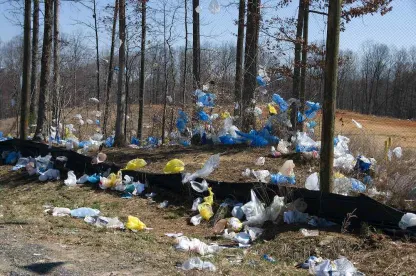What is happening? Connecticut has joined several other states in imposing plastic recycling mandates on manufacturers. These laws seek to improve the market for recyclables by establishing recycled content minimums for plastic products, establishing extended producer responsibility (EPR) programs, and examining ways to improve recycling infrastructure.
Who is impacted? Manufacturers that use plastics and retailers that sell plastic products in states that have already passed legislation, or proposed legislation establishing recycled content minimums, EPR programs, or improvements to recycling infrastructure.
What should stakeholders do? Stakeholders should closely monitor current and pending state plastics legislation and prepare for any upcoming public notice-and-comment periods.
Connecticut has joined other states in passing legislation to boost plastic recycling and recycling infrastructure. CT SB928 – “An Act Concerning Recycled Content for Products Sold in Connecticut” – was signed into law by Governor Lamont on June 14, 2021. The bill requires the Connecticut Commissioner of Energy and Environmental Protection to develop recycled content requirements for “products sold in the state” by December 1, 2022. Although the bill is only 11 lines long, it is likely to have a far-reaching impact. “Retailers, manufacturers, recycling businesses in the state and regional organizations such as the Northeast Recycling Council,” are called upon to consult with the Commissioner and offer recommendations. The recommendations are due January 1, 2022.
In May 2021, Washington enacted a sweeping new minimum recycled content bill, SB5022, which creates recycled content minimums for some plastic products sold in Washington State, bans the sale and distribution of certain types of plastic. The bill also bans expanded polystyrene (EPS) and limits how the food service industry can provide consumers with single-use plastic products such as eating utensils and straws. Additionally, the bill imposes reporting and registration requirements for manufacturers of certain plastic products. Governor Inslee signed this bill on May 17, 2021.
In Maine, the EPR bill (LD 1541) has passed the state legislature on June 18, 2021, and is awaiting the governor’s signature. The bill establishes a packaging stewardship organization that would, among other functions, reimburse participating municipalities for the per ton cost of managing “packaging material that is readily recyclable.” The Maine Department of Environmental Protection would set the fee per ton of packaging material.
Maryland enacted legislation on May 19, 2021 that requires the Department of the Environment to examine ways to improve the state’s recycling market. The Department is also tasked with identifying the materials making up the largest portion of the waste stream, materials in need of recycling assistance (and corresponding marketing opportunities), methods to collect and process recycling, businesses that use recycled materials (including opportunities for businesses to increase use of recycled materials). The Department will make its initial recommendations on how to improve markets for recyclables by September 2022.
California has proposed legislation, AB 478, that would require thermoform plastic containers (non-rigid clamshells, tubs, trays, and egg cartons used to store produce, nuts, baked goods, and deli items) to contain at least 30% post-consumer recycled plastic by 2030. The bill passed the Assembly and is in the CA Senate. And New York introduced legislation, which did not pass, that would have required packaging producers to meet minimum post-consumer recycled content rates and recycling rates based on material type, but given brands flexibility in how to meet those goals. Although New York’s bill is dead, its authors Sen. Todd Kaminsky and Assemblyman Steve Englebright have both prioritized environmental issues during their terms, including waste reduction.
Plastics pollution has also been the subject of several bills at the national level. Sen. Jeff Merkley (D-OR) and Rep. Alan Lowenthal (D-CA) reintroduced the Break Free from Plastic Pollution Act (S.984 and H.R.2238). The reintroduced act proposes a recycled content minimum for plastic beverage containers of 50 percent. Additionally, the U.S. House introduced the “Climate Leadership and Environmental Action for Our Nation's (CLEAN) Future Act.” The bill would also require minimum recycled content for plastic beverage containers and require EPA to conduct an annual assessment of plastic waste. Currently, the bills have not passed in either the Senate or House.
Manufacturers and retailers face a growing patchwork of legislation, proposed and enacted, that will affect plastic recycling, recyclability, and recycled content mandates, as more states look to reduce plastic waste without waiting for Congress.





 />i
/>i

